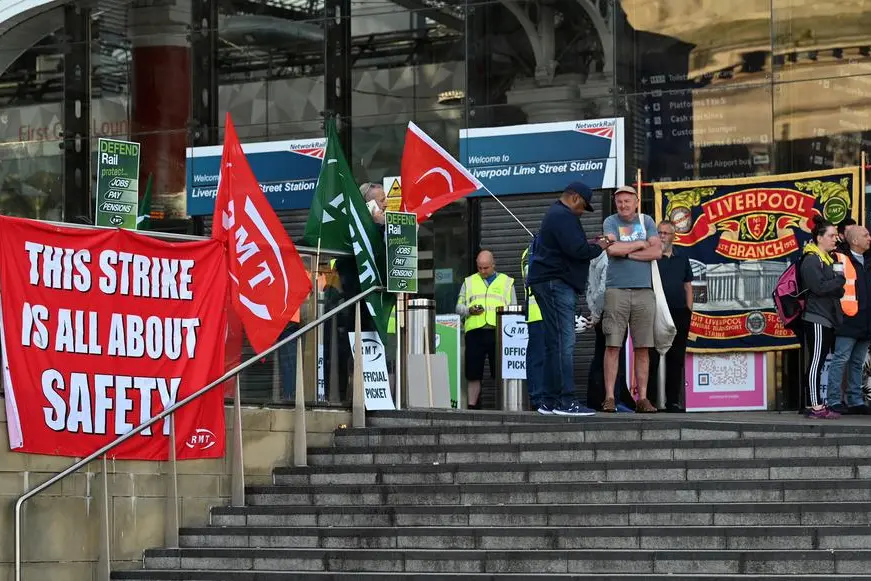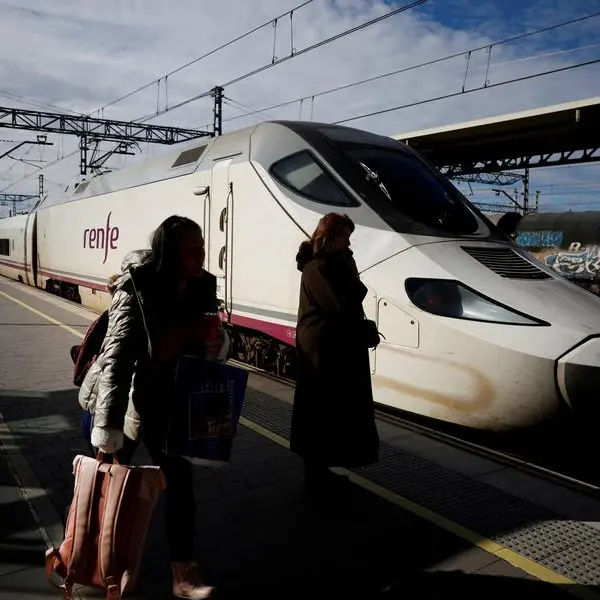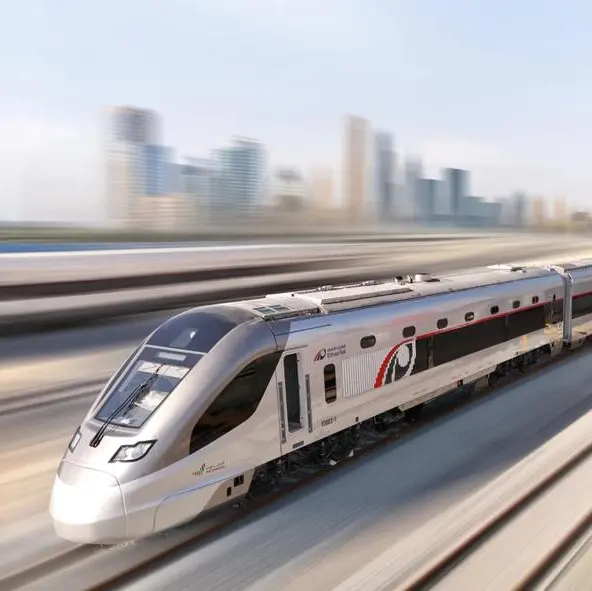PHOTO
Rail workers in Britain held their latest strike over pay and conditions on Saturday, as more than a year of walkouts on the country's train network grinds on.
Members of the Rail, Maritime and Transport (RMT) union working for train operating companies staged the day-long stoppage, leading to the widespread cancellation of services and misery for travellers.
In some areas only about half of train services will run, while others will have none at all.
The repeated strikes by rail staff have been mirrored across the public and private sectors in Britain, as workers demand pay rises in response to decades-high inflation and the worst cost-of-living crisis in a generation.
Those who have taken to picket lines over the last 18 months have ranged from health sector employees and teachers to lawyers and dock workers.
The RMT's dispute with 14 train operating companies running services, over salary and working conditions such as overtime, has been worsened by contentious plans to close most ticket offices across the UK.
RMT general secretary Mick Lynch has accused the Conservative government, which has overall responsibility for rail transport and provides strategic direction and funding, of trying to "artificially keep the dispute going".
"Our union remains wholly committed to reaching a negotiated settlement on pay, jobs, security and conditions," he said Saturday as RMT members joined picket lines nationwide.
"But our members remain steadfast in their industrial action and will not be cowed into submission by anyone."
The Department for Transport insists officials have met with rail union bosses, listened to their concerns and facilitated improved offers.





















